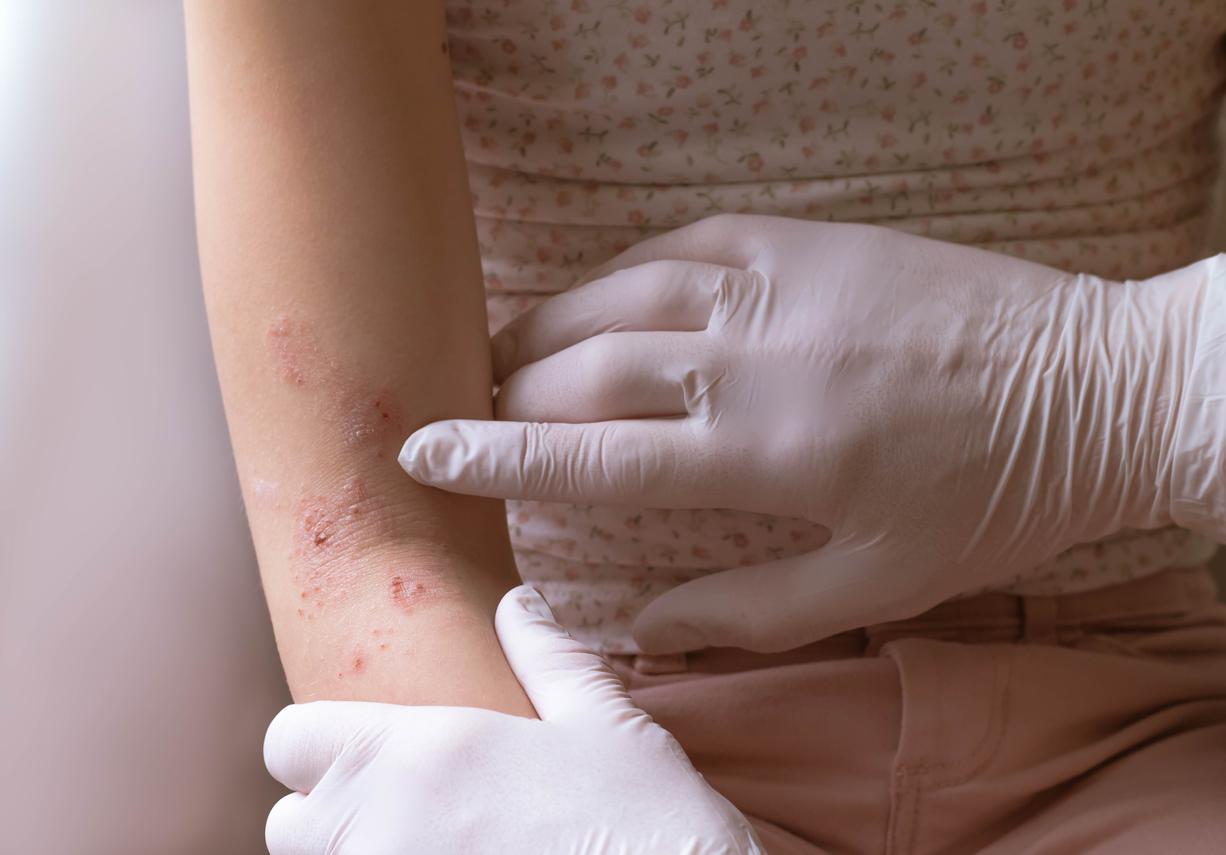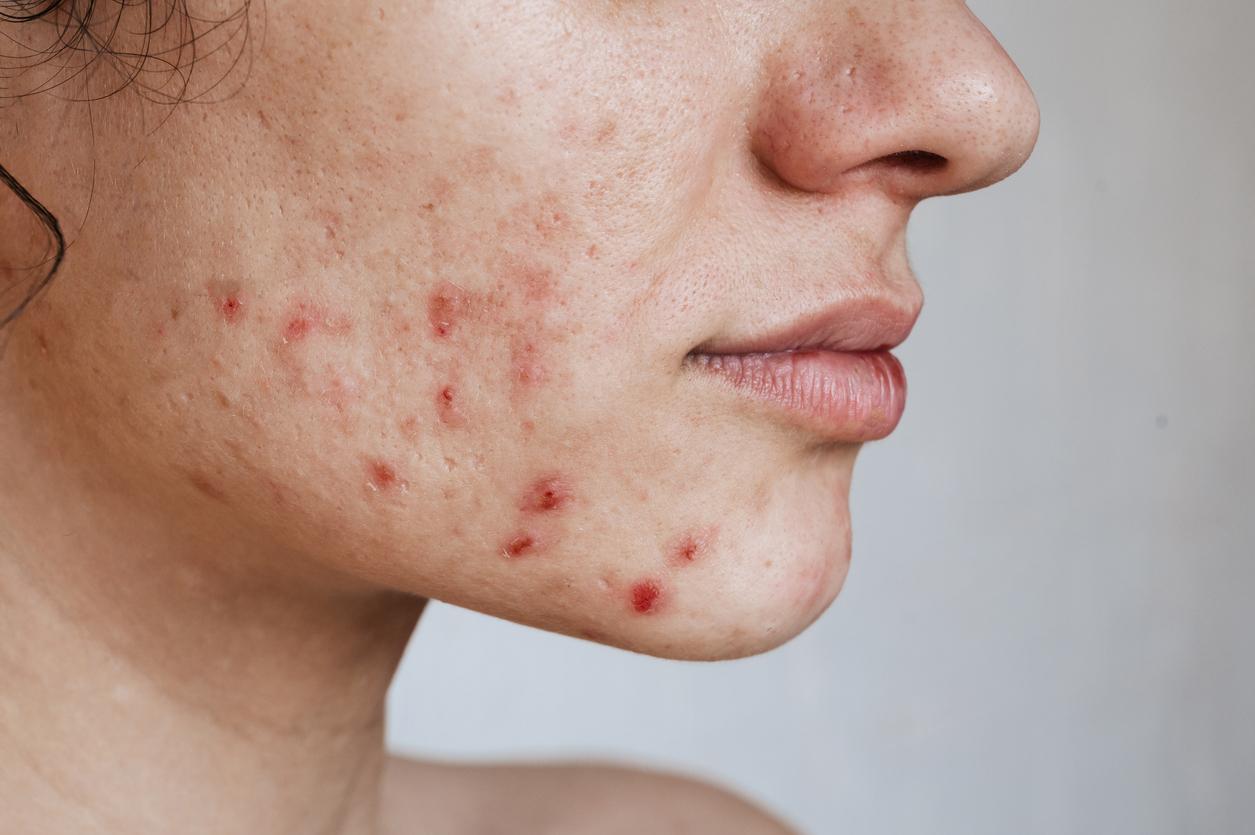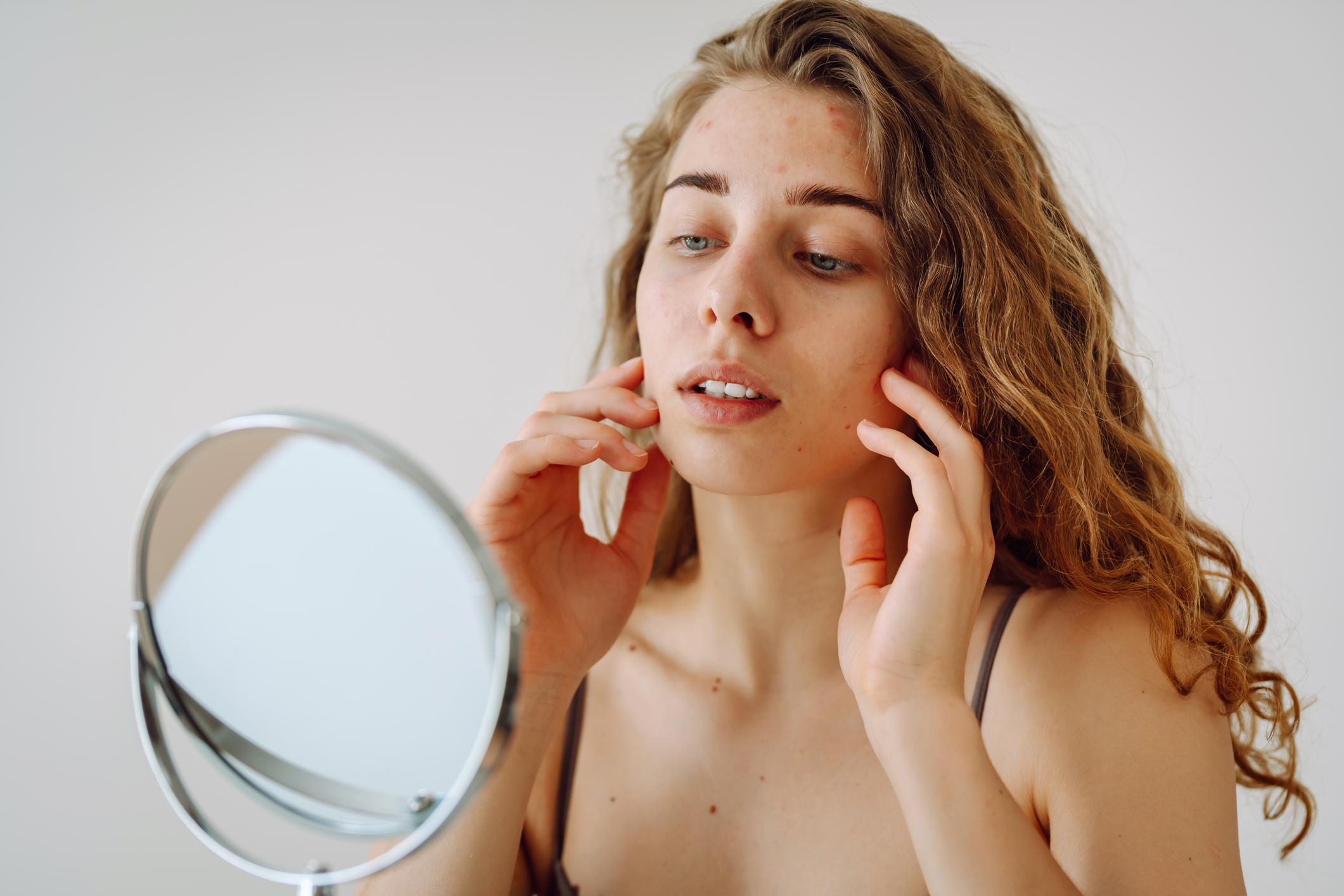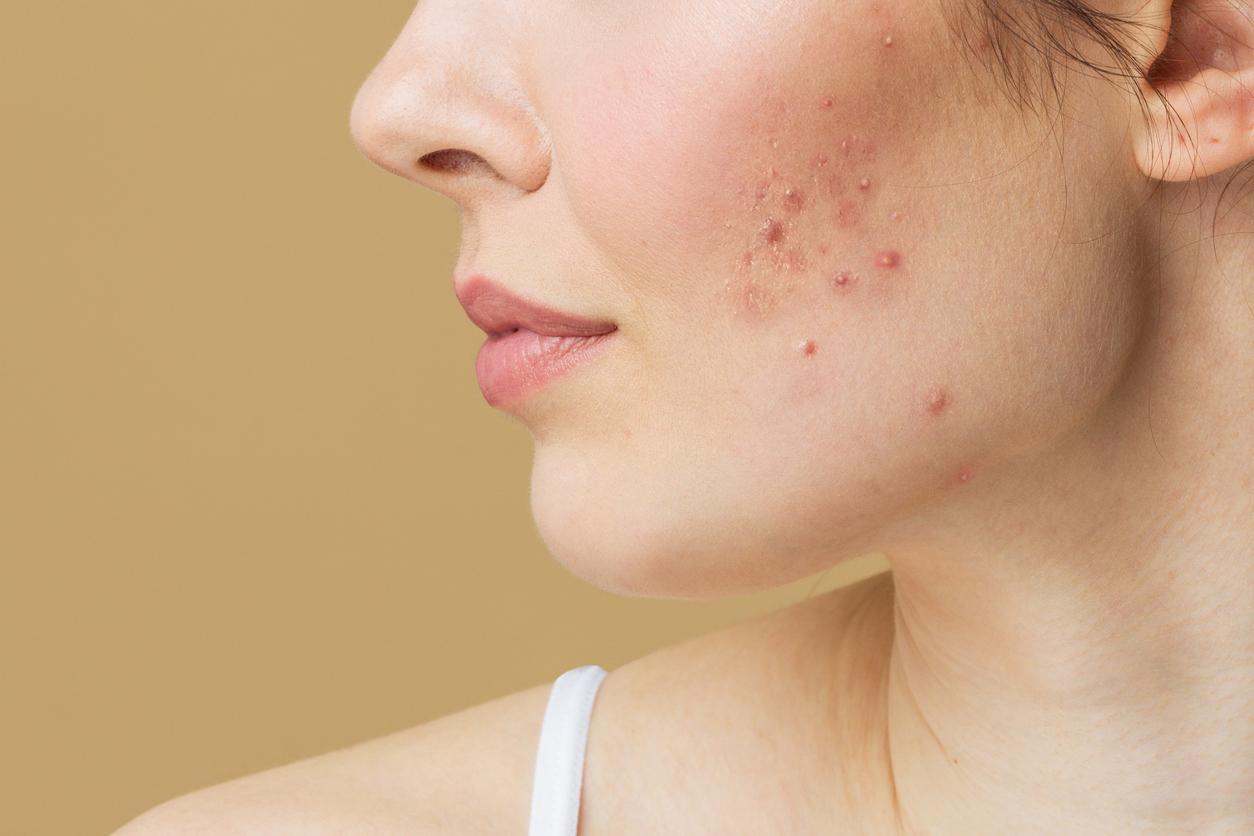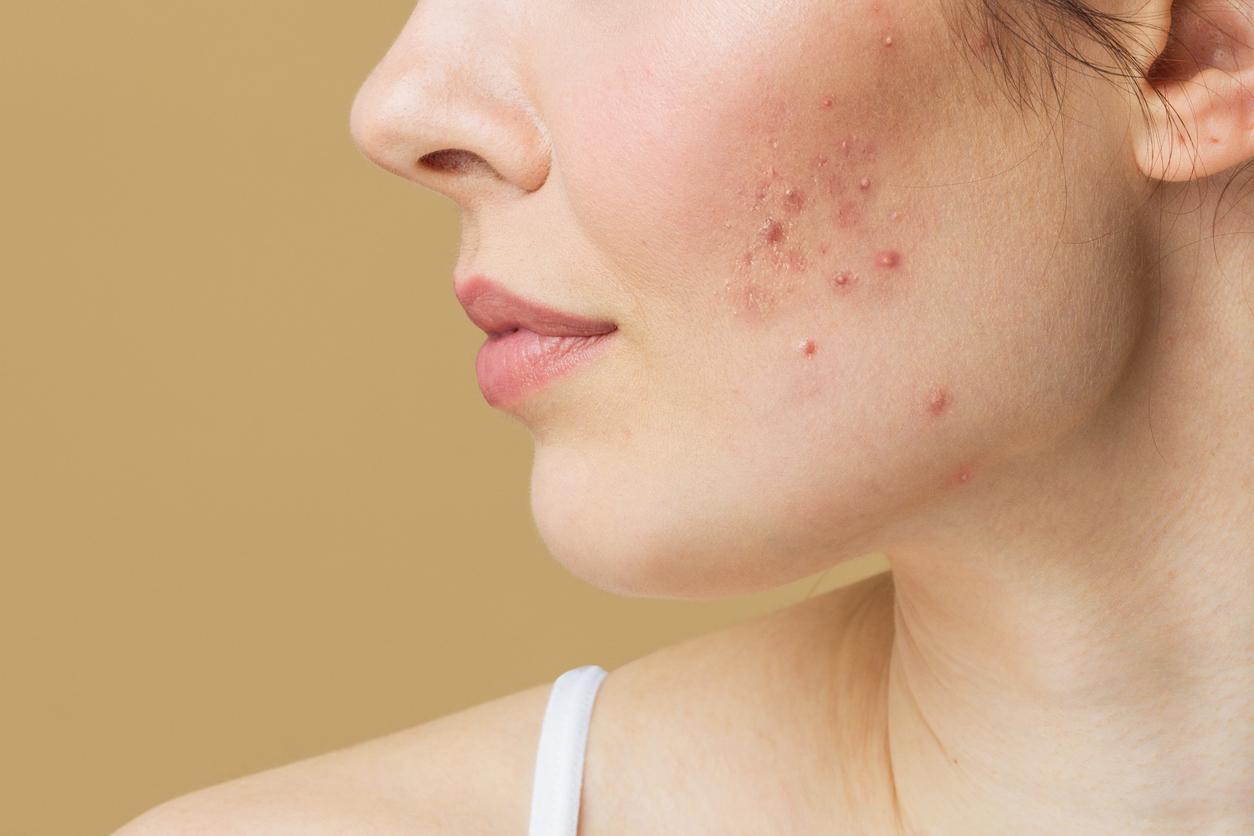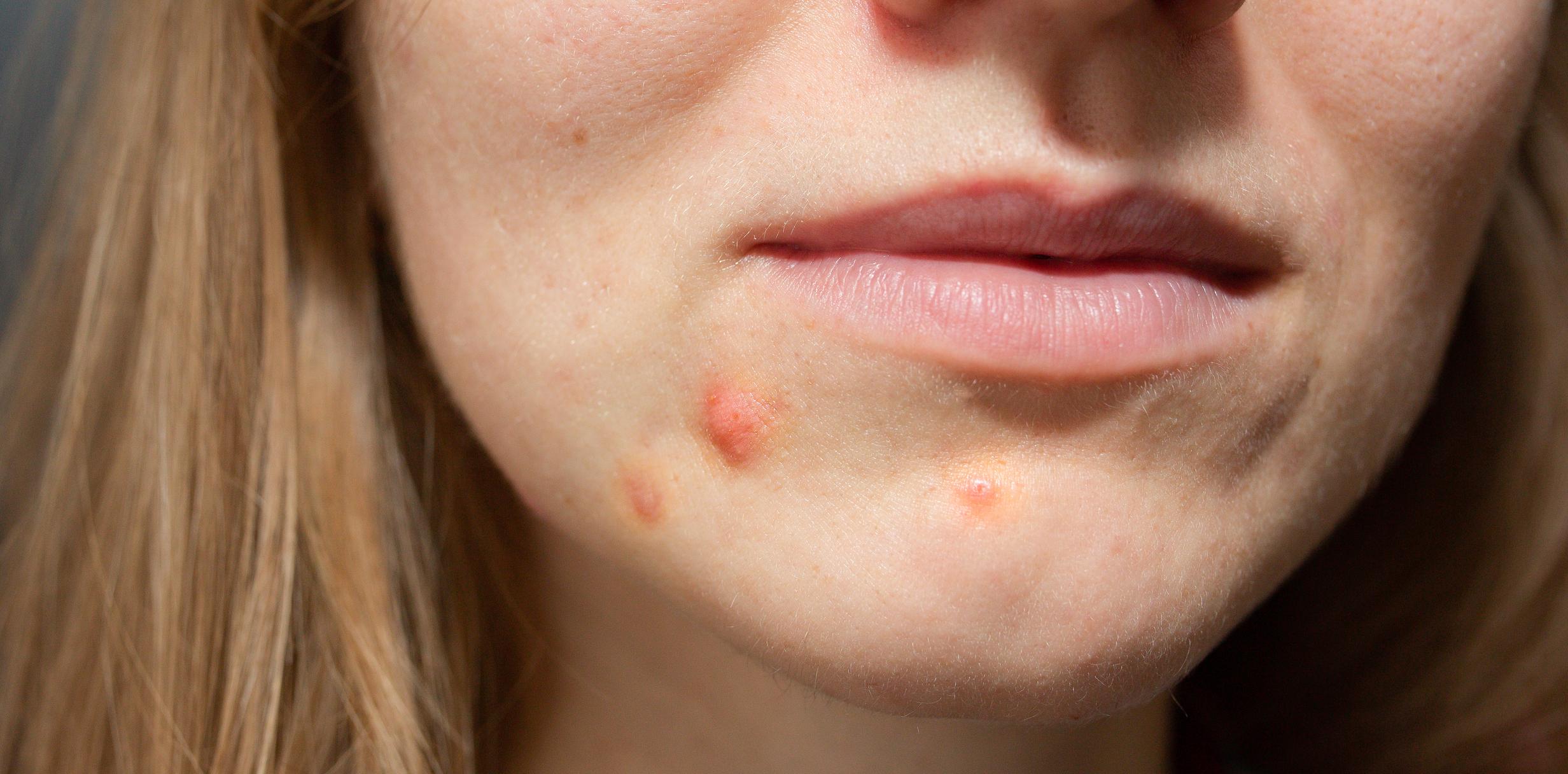Acne treatment: 3 months minimum to be effective
Acne is a chronic skin disease that affects the glands that secrete sebum. It causes clogging of pores and the appearance of lesions (blackheads and whiteheads), pimples, and even nodules.
It is according to the severity of these lesions that the dermatologist will graduate the type of acne from which one suffers, from very light (grade 1) to very severe (grade (5).
Depending on the degree of severity, various treatments will be offered as “first intention” (i.e. as the first treatment) for at least 3 months. Indeed, no acne treatment is effective immediately. It is necessary to follow it several weeks before obtaining an improvement and only the follow-up of the treatment is a guarantee of its success.
On the other hand, if the failure is proven after 3 months of correctly followed treatment, the dermatologist can change therapy.
Very mild acne attack treatment
Acne is said to be grade 1 (very light) when there is practically no lesion and rare scattered comedones on the face (open or closed) or a few rare papules.
The recommended treatment: treatment with benzoyl peroxide (a local antibacterial and anti-inflammatory treatment like generic Afacne) WHERE local retinoids (which contain adapalene and work by unclogging the hair follicle).
If failure at 3 months: benzoyl peroxide treatment AND local retinoids.
Mild Acne Attack Treatment
Acne is said to be grade 2 (light) when less than half of the face is affected and there are a few open or closed comedones and a few papulo-pustules.
The recommended treatment: treatment with benzoyl peroxide (a local antibacterial and anti-inflammatory treatment like generic Afacne) AND local retinoids (which contain adapalene or tretinoin and work by unclogging the hair follicle).
If failure at 3 months: intensification of first-line local treatment
WHERE local treatment with antibiotics and retinoids or azelaic acid
WHERE combination of oral cyclin family antibiotics and treatment with benzoyl peroxide and topical retinoids.
Medium Acne Attack Treatment
Acne is said to be grade 3 (mean) when more than half of the face is affected and there are numerous papulo-pustules and numerous open or closed comedones. Sometimes a nodule may be present.
The recommended treatment: benzoyl peroxide treatment AND local retinoids (tretinoin 0.025% to 0.050% or adapalene 0.1%)
WHERE oral antibiotic treatment (doxycycline 100 mg/day or lymecycline 300 mg/day) and treatment with benzoyl peroxide and topical retinoids.
If failure at 3 months: oral isotretinoin (known by its former name Roaccutane) is recommended. The first prescription is reserved for the specialist. Renewal is possible by the general practitioner.
Severe Acne Attack Treatment
Acne is said to be grade 4 (strict) when the whole face is affected, covered with numerous papulo-pustules, with open or closed comedones and rare nodules.
The recommended treatment: oral antibiotic treatment (doxycycline 100 mg/d or lymecycline 300 mg/d) associated with local treatment combining treatment with benzoyl peroxide and local retinoids.
In case of failure at 3 months: oral isotretinoin is recommended. This treatment may be started before 3 months in the event of failure of the first-line treatment if there is a significant risk of scarring or if there is rapid recurrence.
It should be noted that due to their modest effectiveness and the emergence of resistant strains, antibiotics are limited to the only situations where they are necessary. And in accordance with its usage restrictions, minocycline (an antibiotic from the cyclin family) is still not indicated in the treatment of acne.
Very severe acne attack treatment
Acne is said to be grade 5 (very severe) when it is very inflamed and covers the entire face with nodules.
Recommended treatment: oral isotretinoin (at least 0.5mg/kg/d in attack and up to a cumulative dose of between 120 and 150 mg/kg).
Note that this medicine can cause serious malformations in the fetus. Young girls who suffer from very severe acne must use effective contraception and take a pregnancy test within 3 days before the first prescription. This test must be repeated each month, within three days preceding the monthly prescription of isotretinoin and up to 5 weeks after stopping treatment.
Read also :
Acne: 3 solutions to regain beautiful skin
Severe acne: a handicap for many teenagers
Acne scars: how to get rid of them









